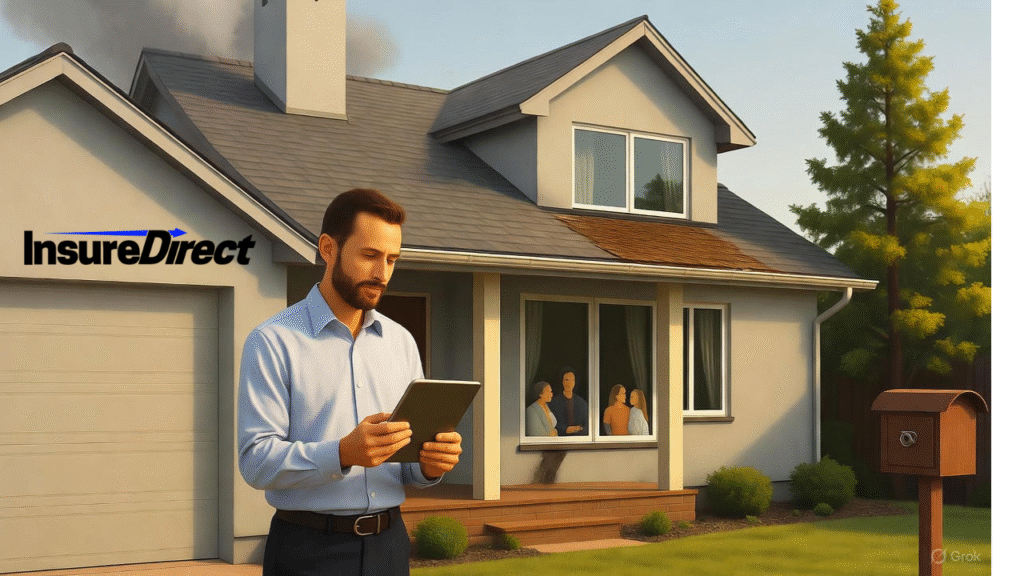Owning a home. Big, heavy, emotional. Not just walls and nails, right? It’s where you eat, sleep, celebrate, cry, and grow. Imagine a storm tearing off your roof, a fire gutting the kitchen, or a flood swallowing the basement. Ouch. Homeowners insurance? That’s the quiet guardian you barely notice—until catastrophe strikes. I used to think it was just a bank requirement. Nope. It’s an invisible safety net, patiently waiting.
The House Itself: Dwelling Coverage
Walls, floors, ceilings, built-ins—if damaged, insurance steps in. Fire, wind, hail, vandalism—you name it. Think of dwelling coverage as the core. Without it, every tile, beam, and appliance repair comes out of your pocket. Not cheap. Some policies pay less than the actual rebuild cost, so double-check, triple-check.
Structures Around Your Home: Other Structures
Detached garages, sheds, fences, guesthouses? Usually covered. Often about 10% of dwelling coverage, sometimes more. Learned this the hard way—my shed collapsed in a Texas windstorm. Insurance paid, shocker. Don’t assume automatic coverage; read the fine print or regret it later.
Personal Property: Your Belongings
Laptops, furniture, clothes, grandma’s ugly vase—covered if damaged, destroyed, or stolen. Stolen outside the home? Sometimes yes, sometimes no. Jewelry, art, and collectibles may need riders. Shockers. My grandfather’s coin collection wasn’t fully insured—lesson learned the hard way.
Liability Coverage: When Someone Gets Hurt
Slip on icy stairs? Dog bite? Cat destroys expensive rug? Liability insurance steps in: medical bills, attorney fees, and sometimes settlements are covered. Not unlimited, but way better than bankruptcy. Legal disasters are expensive, like “pouring water over your eyes” expensive.
Additional Living Expenses (ALE): No Home, No Problem
Fire, flood, or other disaster makes your home uninhabitable. Hotels, meals, temporary housing—ALE covers it. A friend lived six months in an Airbnb while rebuilding—ALE prevented financial ruin. Not glamorous, but life-saving.
The Gaps Most People Don’t Know
Flood? Earthquake? Neglect? Usually excluded. Extra coverage needed. High-value items—jewelry, watches, fine art—require riders. Home inventory essentials: photos, serial numbers, appraisals. Without records, claims get messy fast.
Why Homeowners Insurance Matters
Savings, memories, late-night snacks, birthdays, toddlers’ first steps—they’re all inside. Without insurance, a disaster equals a financial nightmare. Mortgage lenders require it. Peace of mind? Priceless. Sleep at night, truly.
How to Make Sure You’re Properly Covered
1. Assess Home and Belongings
Coverage should match rebuild cost, not market value. Inventory all items—electronics, furniture, clothes, and sentimental items. Properly documented, claims are easier.
2. Compare Policies and Providers
Different companies, different perks, sneaky exclusions. Read fine print. Coffee helps. Ask weird questions: “Does this cover a rogue raccoon destroying the attic?” Funny, but true in some legal scenarios.
3. Consider Bundling
Home + auto = discount. Home + life + umbrella + auto = bigger discount, more security. Bundling sometimes changes coverage limits. Weird but true.
4. Review Annually
Home renovations, new purchases, increased property value—policy should evolve. Old policy = uncovered loss = unhappy homeowner.
5. Read Fine Print
Exclusions lurk: water backup, sewer damage, mold, pests. Don’t assume standard policy covers it. Knowledge = power. Coffee recommended.
Real-Life Examples
- Storm Ruins Roof: Dwelling coverage pays for repairs; ALE covers temporary living.
- Laptop Stolen: Personal property coverage replaces it.
- Neighbor Trips on Ice: Liability coverage handles medical and legal bills.
- Trampoline Mishap: Liability + ALE may apply.
- Pet Incident: Dog bite or cat damage, coverage handles medical/legal fees.
Extra Considerations
- High-Value Items: Riders or scheduled property endorsements.
- Natural Disasters: Flood and earthquake insurance are separate; check state rules.
- Home-Based Business: May need separate business insurance.
- Lifestyle Factors: Teen drivers, pets, and rental properties affect premiums and coverage gaps.
Cost of Homeowners Insurance
Varies by location, home value, materials, age, and claims history. Rough estimate: $1,000–$3,000/year for average U.S. home. Higher for high-risk areas, luxury or older homes. Discounts available for bundling, security systems, and a claims-free history.
Tips to Maximize Coverage
- Photograph everything. Seriously.
- Keep receipts, appraisals, and serial numbers.
- Consider riders for valuables.
- Bundle if it saves money, but check limits.
- Review annually; life changes = new risks.
Final Thoughts
Homeowners insurance isn’t glamorous or exciting. It’s a silent guardian, ready for disaster. From fires to theft, liability claims to temporary housing, a good policy prevents a minor mishap from becoming catastrophic. Less about money, more about safety, peace, and sleep.
Understand your policy, identify gaps, update regularly, and document possessions. In 2025, a house is more than walls—it’s memories, dreams, and sometimes chaos. Insurance navigates the chaos without losing everything.
Contact InsureDirect
InsureDirect.com
Corporate Home Office
618 South Broad Street
Lansdale, Pennsylvania 19446
Email: contact@insuredirect.com
Phone: (800) 807-0762 ext. 602
Corporate Home Office
618 South Broad Street
Lansdale, Pennsylvania 19446
Email: contact@insuredirect.com
Phone: (800) 807-0762 ext. 602
Keep your home safe and secure with complete protection from InsureDirect—because your home deserves nothing less than the best.

